Cybersecurity safety tips
We use technology on the daily for just about everything. But while we’re caught up in our highly digitalised lives, we tend to overlook a very crucial thing: the security of the devices and accounts that we use.
One of the biggest scares that we’ve encountered recently would be the SingHealth data breach, where the personal data of at least 1.5 million of us was stolen. And of course, we have the Black Mirror series to remind us of the potential terror that lurks in tech, from killer robot honeybees to hackers tracking your every move.
That all sounds pretty scary, but thankfully, ensuring your cybersecurity is actually very simple. Here’re 10 ways how:
1. Set up 2-factor authentication (2FA) for social media accounts
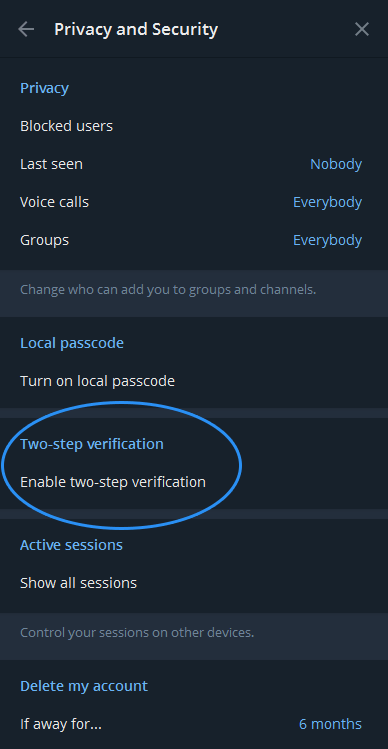
Even Telegram has an option for 2FA authentication.
Image credit: Telegram
I’m sure you’ve seen 2-factor authentication (2FA) pop up when you try to sign in to your SingPass and i-banking accounts. And if you’re like me, you’re annoyed each time you have to whip your phone out to check the passcode sent to you.
But it’s this very extra step to log you in that actually makes it harder for attackers to access your data. Attackers may have your password, but without knowing the code sent to your phone, they can’t access your account.
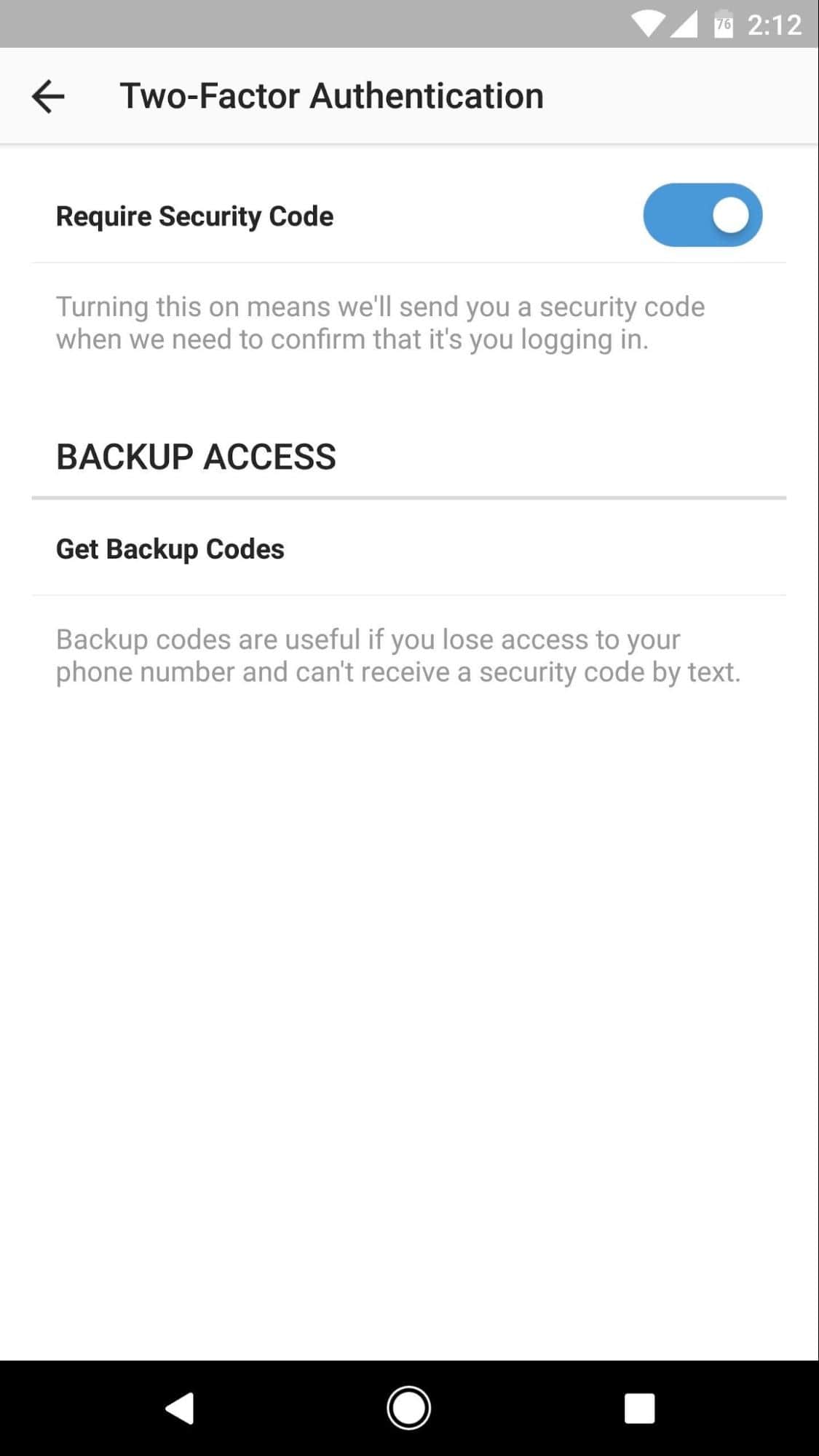
Turning on IG’s 2FA function
Image credit: Gadget Hacks
2FA has also spread to our social media, where you can set it up for Facebook, Instagram, and Whatsapp. In the long run, you’ll be grateful you did, as your likelihood of being hacked is greatly reduced.
2. Bring out portable chargers instead of using public charging stations
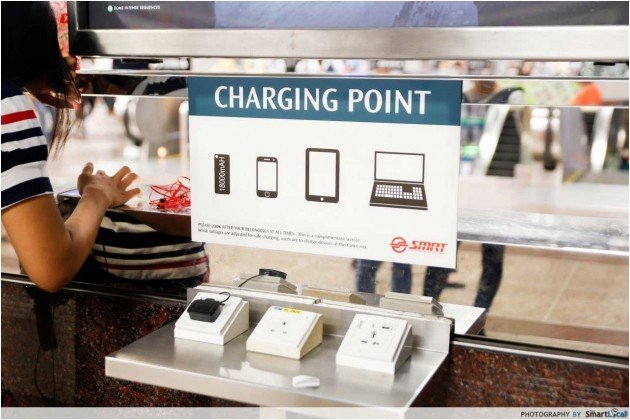
Whether we’re at bus stops, MRT stations, and even Changi Airport, there are charging stations available at our convenience, allowing us to replenish our phones’ juice while we wait for our commute.
But beneath their veneer of convenience, these charging stations can potentially be hijacked by malicious hackers, meaning that you run the risk of having malware installed on to or data copied from your phone when you use these stations. Juice jacking is the term used to describe this process, and you can learn more about what it is here.
Just bring a fully-charged portable charger with you when you’re out in public, and you’ll be safe from the dangers of juice jacking.
3. Get a RFID blocking wallet to protect your wireless payment cards
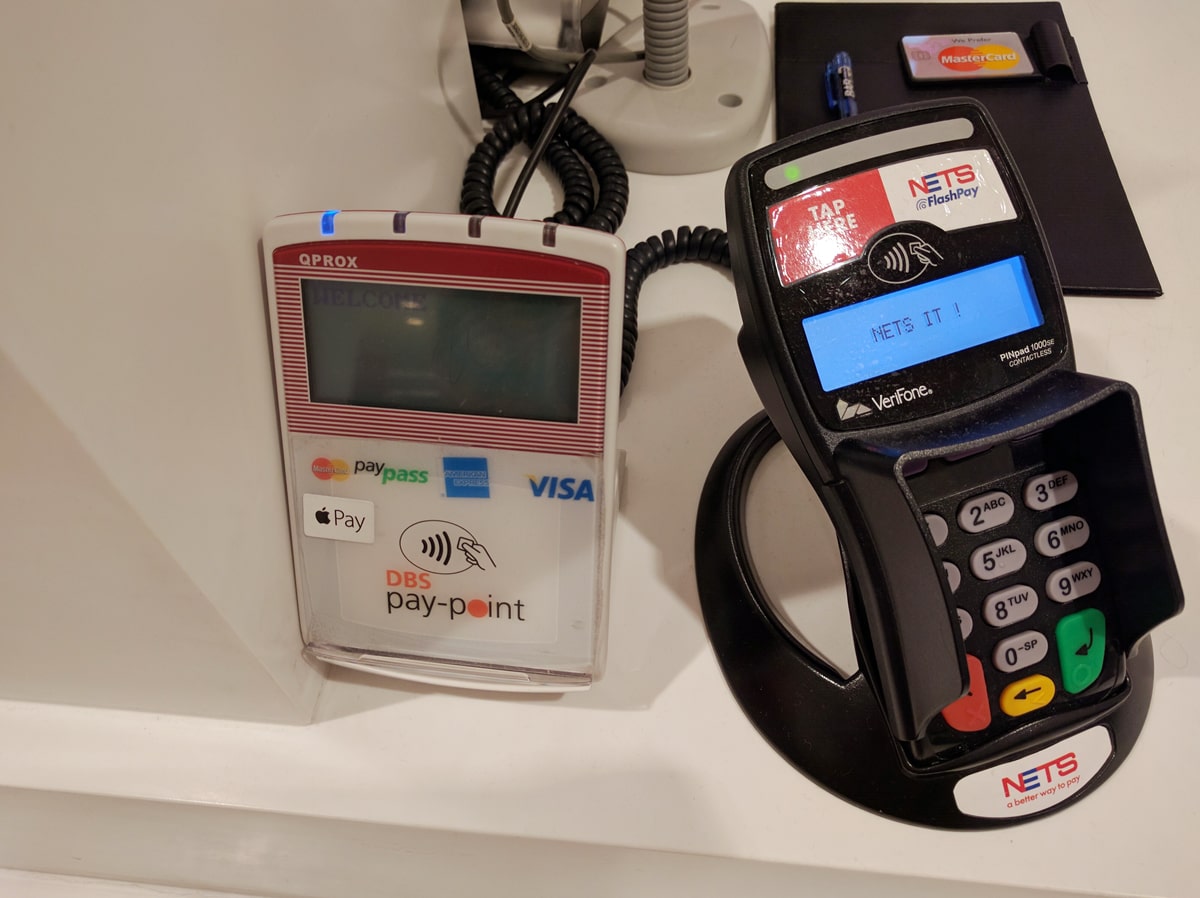
Image credit: Geek Culture
Radio-frequency identification (RFID) is the technology that powers your wireless payment methods, including Paywave and EZ-Link. While this tech most certainly makes payment more convenient, it can also be manipulated to read and record your cards’ info – even through the seemingly protective barrier of your wallet.
The pickpocket doesn’t even have to reach his hands into your pocket to steal your wallet. All he needs to do is carry around an RFID scanner and direct it to where he thinks your wallet is – all while distracting you by pretending to have small talk with you.
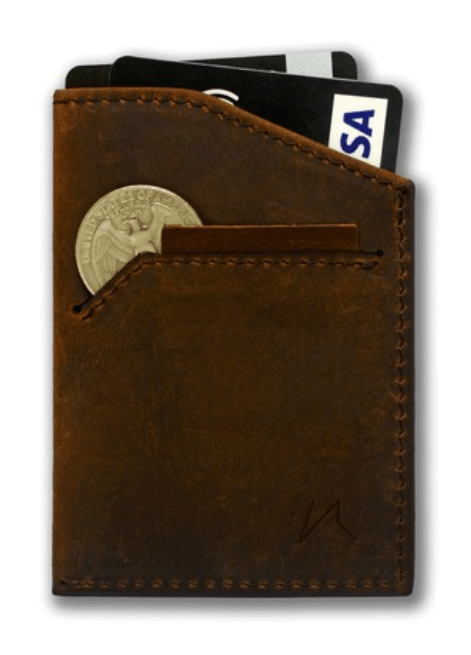 Check out Natsu, a minimalist RFID blocking wallet you can find on Shopee.
Check out Natsu, a minimalist RFID blocking wallet you can find on Shopee.
Image credit: Shopee
To prevent such incidents from happening, get an RFID blocking wallet, which is made out of a material that interferes with radio waves, preventing communication between your cards and RFID scanners. Shopee rocks a pretty classy one, and it comes cheap from $39.90 to boot!
4. Double check email links from “official organisations”
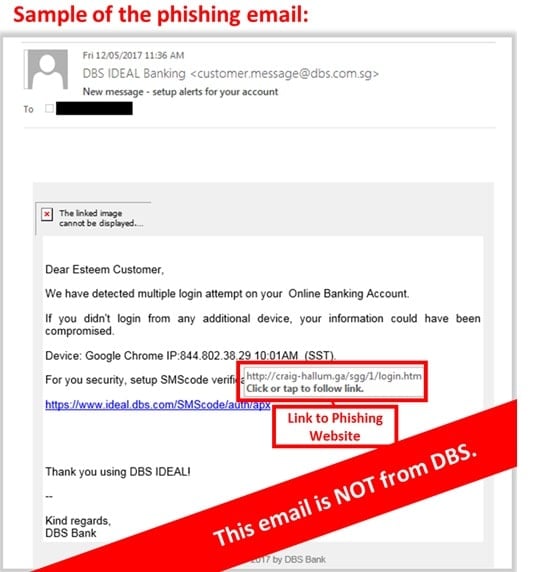
DBS advisory on phishing links emailed to customers
Image credit: DBS
Common sense tells you that you shouldn’t click on every block of text highlighted and underlined in blue on the ‘Net. But you could be careless and end up clicking on something sinister, like phishing links that trick you into sharing sensitive info with the wrong people.
There are links that pose as legit links to official websites, often with very minor changes to spelling and punctuation. For example, dbs.com.sg could pose as d.bs.com.sg (please don’t click on this; we made it up) – the mighty period makes all the difference in distinguishing between the two links.
If you’re on your computer, hover over the link, and the full URL will appear on the bottom left of the window. On your phone, tap and hold the link to trigger a popup window, which will show the full URL and options on what to do.
5. Cover your phone and computer cameras with privacy shutters
You may have seen it before. You’re out studying with your friends and you notice they have taped their laptops’ webcam. Heck, even Mark Zuckerberg is known to have stuck a piece on his own Macbook’s webcam. Why do they do this? Very simply, to fend off hackers.
 Black Mirror episode ‘Shut Up And Dance’ follows Kenny, as he’s blackmailed after a private moment is secretly recorded.
Black Mirror episode ‘Shut Up And Dance’ follows Kenny, as he’s blackmailed after a private moment is secretly recorded.
Image credit: Black Mirror Reflections
You may be thinking wah, must be so paranoid one meh? But if Black Mirror has taught us anything, you’ll know how real the threat of your devices’ cameras being hacked into is. It’s been proven that the LED indicator of your webcam can be disabled even when active – just imagine what the hackers could secretly film you doing.
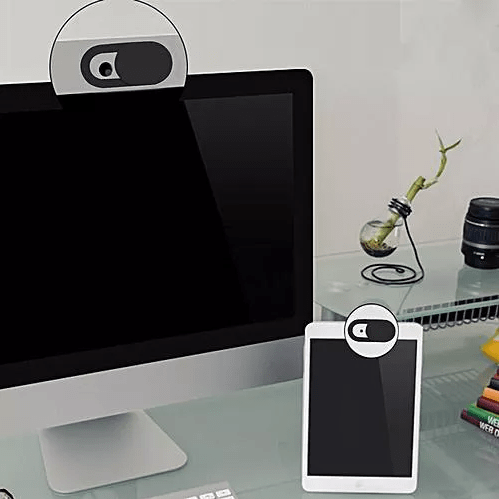 Keeping your phone’s front-facing camera blocked might mean less time spent taking selfies too. 😉
Keeping your phone’s front-facing camera blocked might mean less time spent taking selfies too. 😉
Image credit: yaoota!
But tape isn’t the only thing you can use to cover your cameras. Privacy shutters are a viable alternative, and especially so for phones. Privacy shutters are available cheap, with Shopee offering these from as low as just $2 a piece. Or if you find that these are overkill, you can simply stick a section of opaque tape over your camera.
6. Limit the amount of sensitive info you share on social media
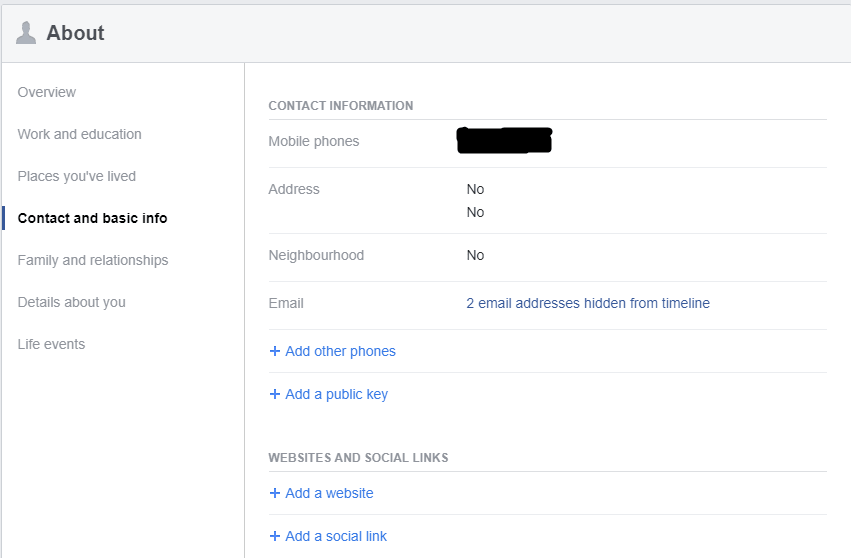 No. Just no.
No. Just no.
Image credit: Facebook
This is one of those things that should go without saying, but there are times when we get careless – maybe you’re filling out a form for a very promising lucky draw you saw on Instagram, and you end up being TMI with your private details like your bank account info, your full address, and your birthdate.
It thus pays to be very careful with how much private info you share online. When filling out your biography sections on your social media and Instagram, it’s definitely good to inject your personality into them – just make sure that the finer details of your personal life are kept private.
7. Change your passwords regularly and vary them across different accounts
 Image credit: SLPowers
Image credit: SLPowers
It’s tempting to use just 1 or 2 passwords for all the accounts that you have. After all, doing so makes passwords both convenient and easy to remember.
But this comes at a great risk. The moment a hacker gets your password for just one account, he/she will be able to access every account that shares the same password.
It is thus best to vary your passwords across different accounts. On top of this, it’s advisable to change them regularly – jazz these up so that hackers can’t track a predictable pattern in the way you craft your passwords.
Tip: Use alphanumeric passwords for extra security!
8. Avoid creating new accounts for other websites with Facebook
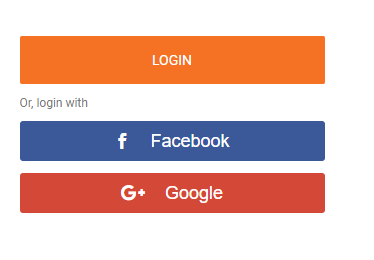 Image credit: Lazada
Image credit: Lazada
I have a confession to make. When I make new accounts for external apps or websites and see the “Use Facebook to login” button, I always click on it without hesitation. I realise now the folly of my ways, for my actions are very risky: if my FB account is hacked, info tied to all these other accounts will also be compromised.
And the recent massive FB breach has only made this issue much more palpable, where more than just FB info is exposed – so too are all linked sites.
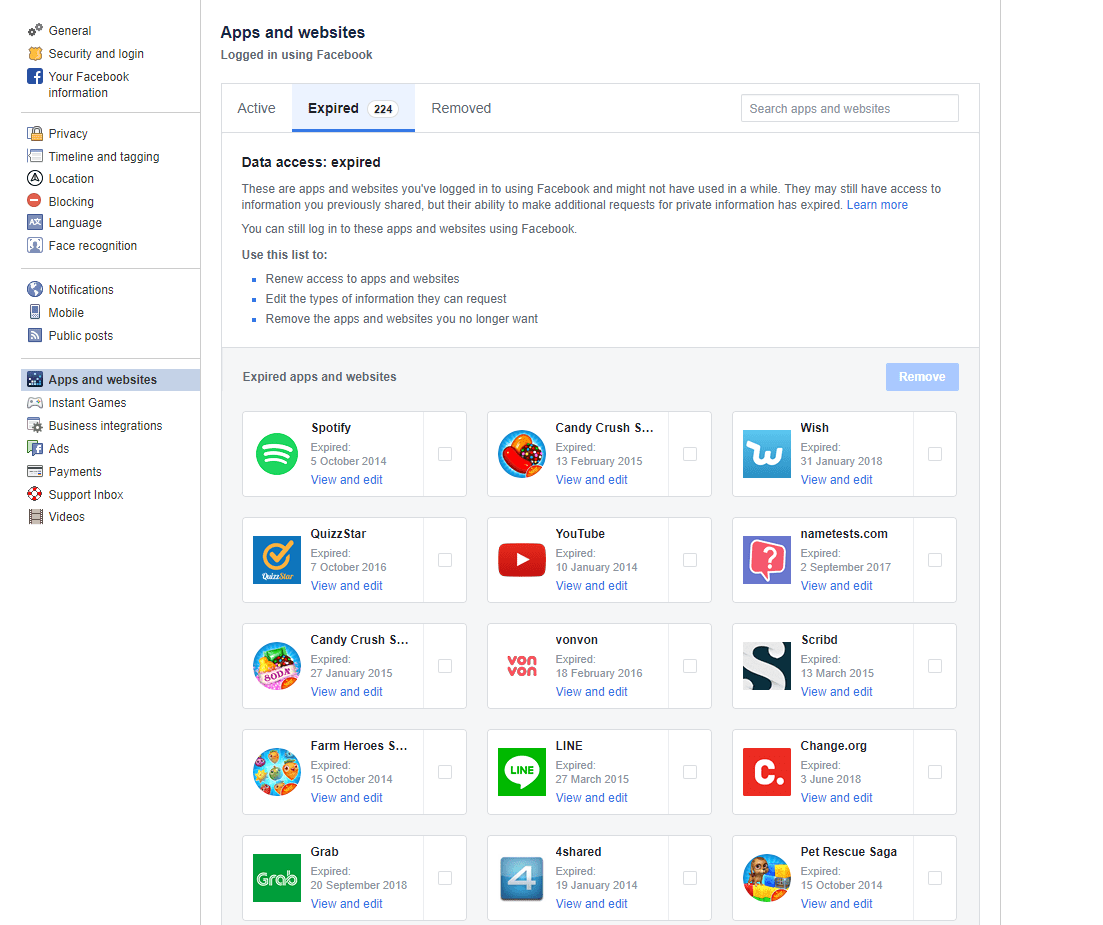 Evidently, I have poor app choices.
Evidently, I have poor app choices.
Image credit: Facebook
If you’re a creature of convenience like me, a quick check through the “Apps and websites” tab of your FB account settings will show you all the many silly apps and websites you’ve created accounts for with FB.
Although FB does help us with an auto function that expires data for these apps and websites, checking the “Expired” tab reveals they’re still alive – this is where you step in and permanently blitz them off your account for good.
9. Be wary of random “free” WiFi connections that might be hackers in disguise
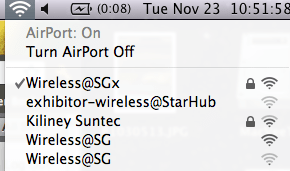 Image credit: Big Mouse
Image credit: Big Mouse
It truly is a blessing when you’re out shopping and you find that the mall you’re in has free WiFi to connect to. Or is it? The “free” WiFi you’ve hooked up to could very well be an evil twin, or a fake WiFi access point that looks legit but actually steals your passwords, either by monitoring your connections or phishing.
When “free” comes at such a cost, it’s best for you to simply stick to your mobile data connection or wait till you’re home to hook up to a safe, stable WiFi connection.
10. Turn off location history tracking to stop your movements from being tracked
In this digital age, stalking gets a major leg up. No longer is it performed by humans alone, as it is now also performed by the biggest tech giants of our age – Google and Facebook.
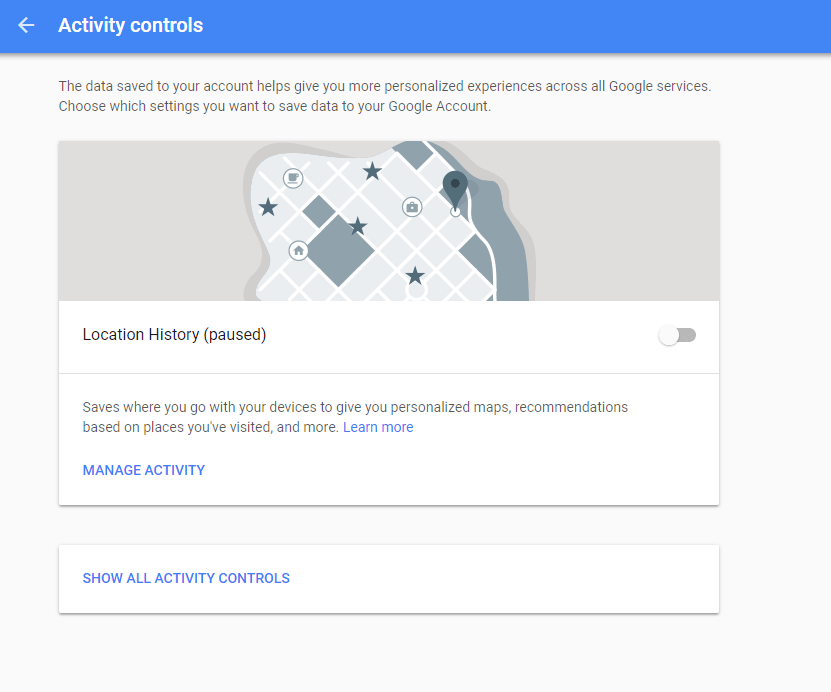 Image credit: Google
Image credit: Google
By tracking your location history, both platforms can trace your whereabouts. Suddenly, that romantic dinner date you had last night is no longer the private affair you thought it was. As you login to Facebook mere days after the date, you see ads recommending a list of chic restaurants.
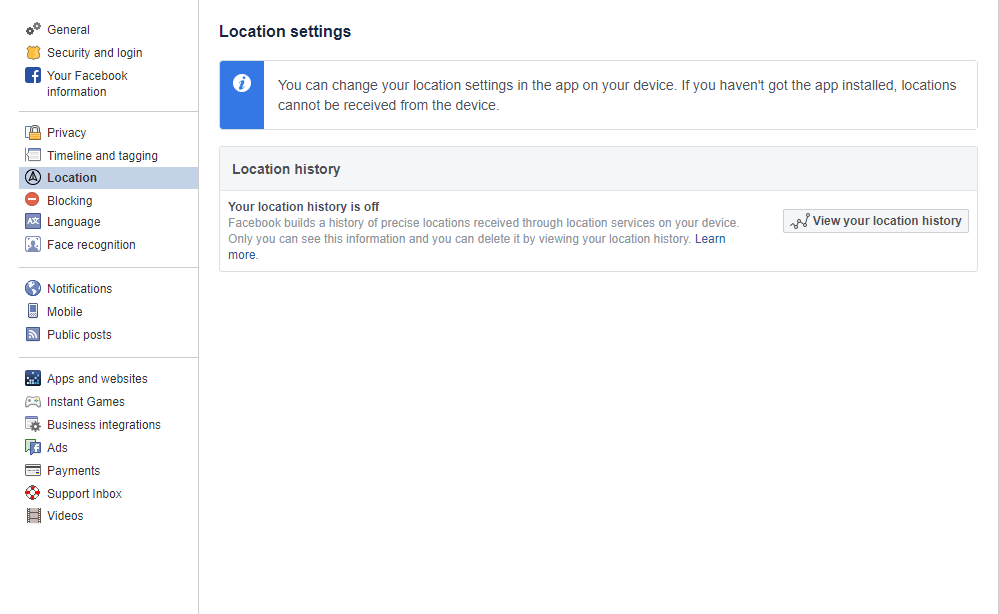 Image credit: Facebook
Image credit: Facebook
Clearly, these tech giants gather info of your location history as part of the personal data they gather of you. And to stop them from picking up on your location, you can choose to turn off location history both on Google and Facebook.
Beef up Singapore’s cybersecurity with MDIS
 Image credit: MDIS
Image credit: MDIS
Cybersecurity doesn’t just mean being kiasu about your online safety – it’s a viable career option you can go for too. And with the growing demand for Infocomm professionals, you can get your headstart with the Management Development Institute of Singapore’s (MDIS) new Cybersecurity and Networks degree.
The Infocomm industry is highly volatile and prone to rapid changes at the slightest drop of a hat. In recognition of this, MDIS will equip you with the necessary expertise to rise up to any challenge, including fundamental practical, professional, and transferable skills that apply to all corners of the industry.
And if you’re concerned over the viability of the degree, you’ll be glad to know that it is endorsed by Teesside University, UK – an institution awarded Silver in the Teaching Excellence Framework (TEF) in 2017 – in partnership with MDIS.
If taking up arms against the evil forces that lurk around the cyber-world is something that fits right into your field of interest, definitely keep MDIS’s Cybersecurity and Networks degree within your sights.
Find out more about MDIS’s Cybersecurity and Networks degree here!
This post was brought to you by MDIS.
Cover image adapted from: yaoota! & DBS

Drop us your email so you won't miss the latest news.










